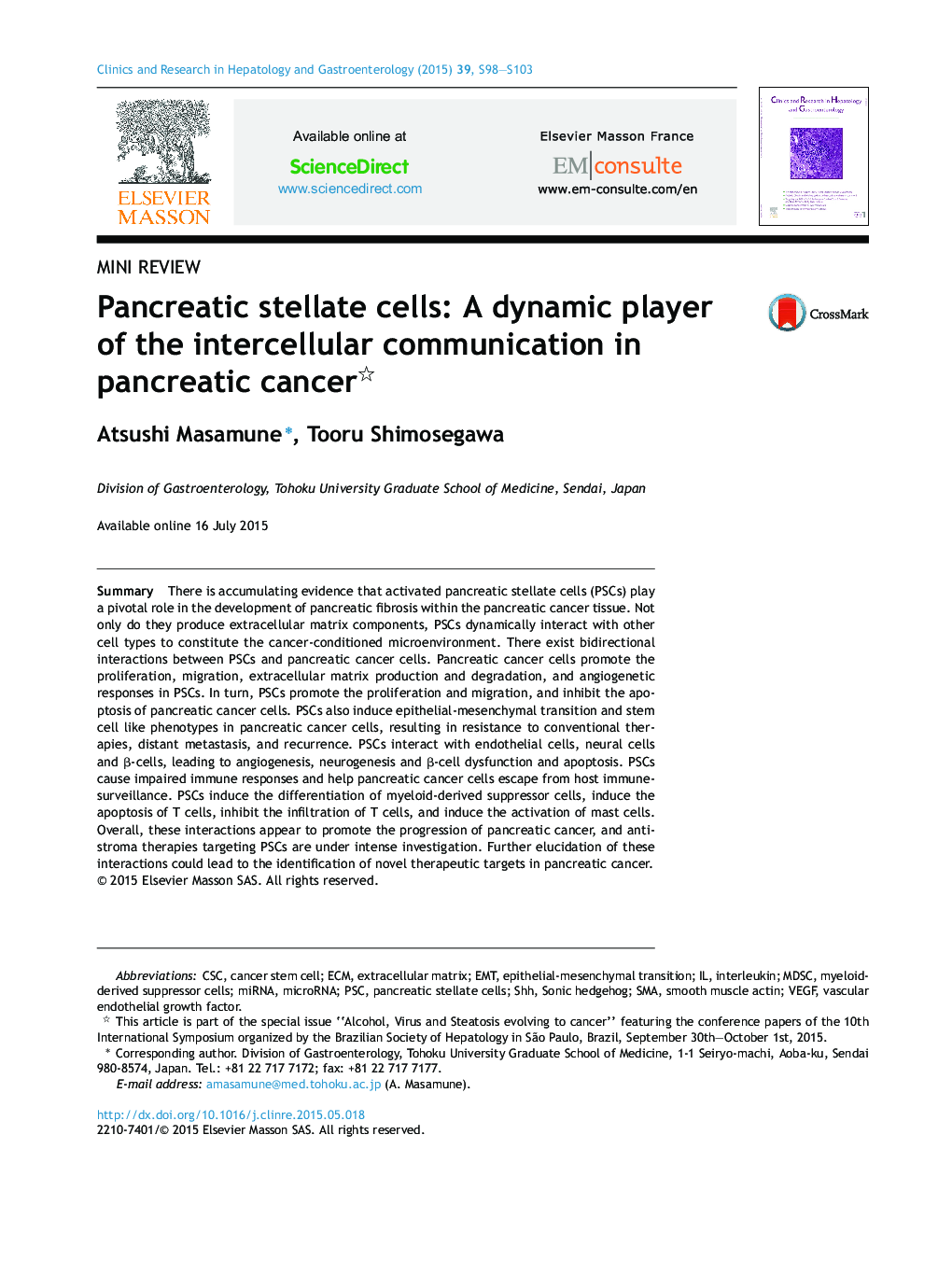| Article ID | Journal | Published Year | Pages | File Type |
|---|---|---|---|---|
| 3286393 | Clinics and Research in Hepatology and Gastroenterology | 2015 | 6 Pages |
SummaryThere is accumulating evidence that activated pancreatic stellate cells (PSCs) play a pivotal role in the development of pancreatic fibrosis within the pancreatic cancer tissue. Not only do they produce extracellular matrix components, PSCs dynamically interact with other cell types to constitute the cancer-conditioned microenvironment. There exist bidirectional interactions between PSCs and pancreatic cancer cells. Pancreatic cancer cells promote the proliferation, migration, extracellular matrix production and degradation, and angiogenetic responses in PSCs. In turn, PSCs promote the proliferation and migration, and inhibit the apoptosis of pancreatic cancer cells. PSCs also induce epithelial-mesenchymal transition and stem cell like phenotypes in pancreatic cancer cells, resulting in resistance to conventional therapies, distant metastasis, and recurrence. PSCs interact with endothelial cells, neural cells and β-cells, leading to angiogenesis, neurogenesis and β-cell dysfunction and apoptosis. PSCs cause impaired immune responses and help pancreatic cancer cells escape from host immune-surveillance. PSCs induce the differentiation of myeloid-derived suppressor cells, induce the apoptosis of T cells, inhibit the infiltration of T cells, and induce the activation of mast cells. Overall, these interactions appear to promote the progression of pancreatic cancer, and anti-stroma therapies targeting PSCs are under intense investigation. Further elucidation of these interactions could lead to the identification of novel therapeutic targets in pancreatic cancer.
